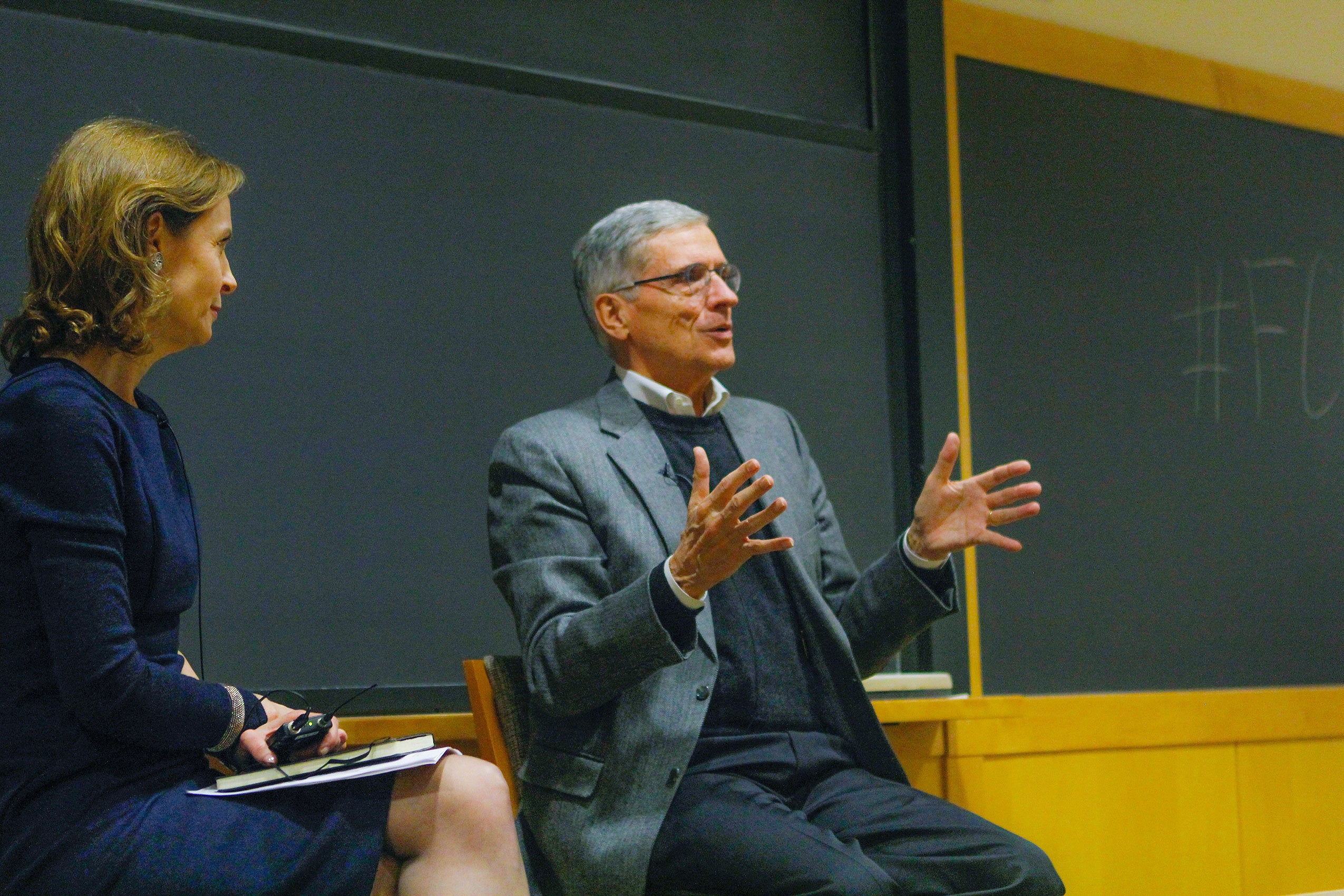Last month, the Berkman Klein Center for Internet & Society at Harvard University hosted Tom Wheeler to discuss his tenure as the 31st chairman of the Federal Communications Commission. In a conversation with Harvard Law School Clinical Professor Susan Crawford, Wheeler outlined some of the most important successes and failures of his administration.
During his time as chairman, Wheeler oversaw a number of far-reaching developments, including the agency’s overriding of state laws designed to restrict cities from building broadband infrastructure that could compete with private companies, the blocking of a proposed merger between Comcast and Time Warner Cable, and vastly expanding funding for connecting schools and libraries to high-speed fiber optic internet access. The FCC’s approval of net neutrality rules has been hailed as one of Wheeler’s signature achievements. The rules ban internet service providers like Comcast and AT&T from blocking or degrading content for some, while providing speedier internet service to others at a higher cost.
These accomplishments, according to Wheeler, reflect a key philosophy that has directed his team’s work over the past four years. “I love this thing called competition.”
The new FCC chairman, Ajit Pai, who had been a commissioner since 2012, has been a fierce and vocal critic of many of the agency’s recent regulations, including the 2015 net neutrality rules.
Wheeler had hoped the incoming chairman would be willing to collaborate as the agency transitioned, but over recent months, he said, Pai cancelled every meeting that Wheeler set up with him.
“It’s hard to work through consensus if you won’t sit down with each other,” said Wheeler. “We need to hear the voices of all those that will be affected.”
Looking ahead to the incoming administration, Wheeler named privacy as a critical issue. In the past, traditional rules that applied to telephone companies could insulate consumers from companies seeking to collect and sell their data, but these rules no longer protect users of modern information networks. The user information collected by websites is now up for sale.
As an independent agency, he said, the FCC has been effective in regulating these changing incentives. Yet recent talk by the Trump transition team of restructuring the agency signals that the administration will hand privacy, competition, and consumer protection work back to the Federal Trade Commission.
But the FTC does not have rule-making authority, Wheeler warned, and is often far too overloaded to give privacy issues the attention they deserve.
In a few final words to the audience about their role over next few years, Wheeler pointed to the vital function broadband connections will play in our lives.
“The most powerful asset of the 21st century are the networks that connect us. How we connect defines who we are. Whether or not that connection will be controlled is an existential question for American commerce and culture,” said Wheeler. “We need to be heard.”
